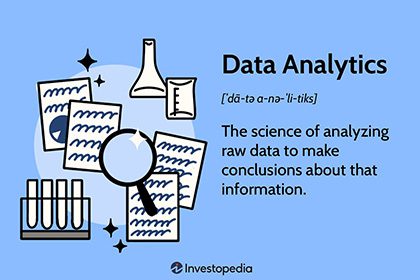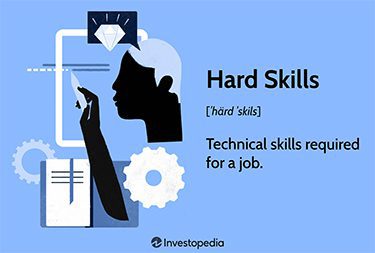From Learning to Earning: Acquire 2024 Top Job Skills for Success
From Learning to Earning: Acquire 2024 Top Job Skills for Success
In today’s rapidly evolving job market, acquiring the right job skills for 2024 is more crucial than ever. As businesses increasingly pivot towards digital transformations, understanding which skills from project management to software development can propel your career forward is vital. Whether you’re honing your expertise in digital marketing, teamwork, or communication skills, knowing what employers will be looking for can give you a significant advantage.
Moreover, integrating tech skills with important soft skills such as leadership, critical thinking, and problem-solving enriches your professional profile, making you stand out in a competitive landscape. Examples of these soft skills include adaptability and emotional intelligence, which are top soft skills sought after by employers.
This article unveils the most sought-after job skills for 2024, ranging from technical domains like AI and machine learning to indispensable soft skills such as resilience and interpersonal skills. We’ll explore how domains like cloud computing and cybersecurity intersect with soft skills like influencing and culture awareness.
You’ll also discover how traditional skills in accounting, entrepreneurship, and customer relationship management are evolving within modern frameworks such as digital marketing and search engine optimization. Whether you’re crafting expert cover letters or harnessing the power of storytelling and networking, this guide equips you with the knowledge to seamlessly transition from learning to earning in today’s dynamic job environment, highlighting the soft skills employers want and what soft skills are employers looking for.
The Rise of Tech Job Skills
The technological landscape is rapidly evolving, and with it, the demand for specific tech skills is soaring. As we move into 2024, certain areas within technology are becoming pivotal for career advancement. Here’s an overview of the most critical tech skills that are shaping the future of work.
Artificial Intelligence and Machine Learning (AI/ML)
AI and ML continue to be at the forefront of tech innovation. The generative AI market alone is expected to see exponential growth, from $40 billion in 2022 to a staggering $1.3 trillion by 2032. This growth highlights the increasing need for AI and ML skills across various industries, not just in tech-centric roles.
Understanding and developing skills in AI technologies like retrieval-augmented generation and customized enterprise models will be crucial. For those looking to specialize, certifications such as Machine Learning/Artificial Intelligence Developer on AWS and Microsoft Azure AI Engineer are recommended.
Cloud Computing
With 65% of organizations adopting multicloud environments, proficiency in cloud platforms like AWS, Azure, and Google Cloud Platform (GCP) is more valuable than ever. The global cloud computing market is projected to reach $1.5 trillion by 2030, indicating a robust growth trajectory. Skills in cloud architecture and cloud security will be particularly in demand, with certifications like Cloud Architect and DevOps Engineer on AWS enhancing your employability.
Cybersecurity
As cyber threats become more sophisticated, the importance of cybersecurity expertise cannot be overstated. The rise of AI-powered cyber threats means that cybersecurity skills are essential for protecting sensitive data and systems. Certifications to consider include Security Analyst and Microsoft Azure Security Engineer.
Programming and Development
Programming remains a foundational skill in tech, with Python, Java, and JavaScript among the top languages required. Python, in particular, is critical for roles in AI, machine learning, and data analytics. For those interested in web and software development, understanding frameworks like React and Node.js will be beneficial.
Emerging Technologies
Technologies like Kubernetes, Docker, and Terraform are becoming essential for managing modern IT infrastructures. Kubernetes, for example, is crucial for orchestrating containerized applications, with a growing number of use-cases in production environments. Learning these technologies will not only boost your technical proficiency but also prepare you for advanced roles in tech operations.
Data Science and Analytics

The field of data science and its importance in extracting actionable insights from large sets of data continues to grow. With a projected increase of 35% in demand for data analysts by 2032, skills in data analytics, visualization, and management are becoming indispensable. This growth opens up numerous career opportunities, making it a lucrative field to enter.
By focusing on these key areas, you can align your skillset with the demands of the future job market, ensuring that you remain competitive and relevant in an increasingly digital world. Whether you’re just starting out or looking to pivot your career, investing in these tech skills will prepare you for success in 2024 and beyond.
Soft Skills and Hard Skills That Complement Tech Expertise
In the dynamic world of technology, the blend of hard skills and soft skills—each with its own soft skills definition—creates a robust foundation for career success. Understanding the synergy between these skill sets, especially soft skills in the workplace, is crucial for tech professionals aiming to excel in their fields. Here, we explore how these skills complement each other and why mastering both is critical for your professional growth.
Hard Skills: Your Technical Backbone
Hard skills refer to the technical knowledge or training you have acquired through education, career, or life experiences. These are measurable and teachable abilities that are often specific to a job or industry.
- Programming LanguagesKnowing languages like Python, JavaScript, and Java is essential for roles in software development and data analysis.
- Data Analysis: Skills in handling, analyzing, and interpreting data are indispensable in today’s data-driven world.
- Network Security: With increasing cyber threats, knowledge in securing networks is crucial.
- SEO/SEM MarketingThese skills are vital for digital marketing roles, impacting a company’s online presence and engagement.
- UX Design: The ability to create user-friendly interfaces is valuable across tech platforms.
Soft Skills: Enhancing Your Technical Expertise
While hard skills are your technical foundation, soft skills are the personal attributes that dictate how effectively you can work and interact with others. Often intangible and harder to quantify, these skills, including a comprehensive list of soft skills, are crucial for workplace success.
- Communication: Essential for explaining complex technical issues clearly and effectively to non-technical stakeholders.
- Teamwork and Collaboration: Facilitates working effectively in team settings, which is crucial in most tech roles.
- Problem Solving and Critical Thinking: Allows for innovative solutions and effective decision-making in complex situations.
- Adaptability and Flexibility: Important traits in the fast-evolving tech industry.
- Leadership: Enables you to inspire and lead teams, driving projects to success.
Integrating Soft and Hard Skills
The integration of soft and hard skills enhances your ability to navigate complex professional landscapes. For instance, a software developer needs to code (hard skill) but also requires the ability to work in a team and communicate effectively (soft skills), highlighting why soft skills are important in the workplace, to ensure successful project outcomes. Here’s how you can integrate these skills:
- Project Management: Combines leadership and planning (soft skills) with technical problem solving (hard skill).
- Client PresentationsUse communication soft skills, including written communication, to present technical data (hard skill) in an understandable way.
- Team CollaborationEmploy empathy and interpersonal skills (soft skills), such as collaboration skills and social skills, to enhance teamwork in tech projects (hard skill).
Table: Marketable Skills for Tech Professionals
| Skill Type | Examples |
|---|---|
| Hard Skills | Mobile development, User interface design, Campaign management |
| Soft Skills | Active listening, Integrity, Effective communication |
| Both | Project management, Data analytics |
By developing a balance of hard and soft skills, you position yourself not just as a technical expert but also as a well-rounded professional capable of leading, managing, and innovating within any organization. This balance includes top soft skills and strong soft skills, making you invaluable.
Navigating the World of Data
In the realm of digital marketing and beyond, data analysis stands as a cornerstone skill, essential for extracting actionable insights from vast datasets. As we navigate through 2024, the ability to analyze, interpret, and leverage data effectively will not only enhance marketing strategies but also drive informed decision-making across various business operations. Here’s a detailed look at the critical data skills necessary for thriving in a data-driven landscape and the pathways to acquiring these competencies.
Essential Data Skills for Digital Marketers and Beyond
- Data Analysis and InterpretationUnderstanding and interpreting data from diverse sources like social media, websites, and CRM systems is crucial. This skill ensures that digital marketers can optimize campaigns and strategies based on real-time data insights.
- Statistical Analysis and Data ManagementProficiency in tools like SQL for data management and R or Python for statistical analysis is vital. These skills help in organizing large datasets and extracting meaningful patterns.
- Data VisualizationMastery in creating visual representations of complex data sets with tools like Tableau or Microsoft Excel helps in communicating insights clearly and effectively to stakeholders.
Career Paths and Learning Opportunities in Data Analysis
- From Analyst to Data ScientistStarting as a data analyst, you can transition to roles in data science by enhancing your programming skills and understanding of machine learning and advanced mathematics.
- Certifications and CoursesEngaging in courses like the Google Data Analytics Professional Certificate or Meta’s Data Analyst Professional Certificate equips you with the foundational and advanced skills in data handling and analysis.
Table: Key Data Analysis Skills and Tools
| Skill/Tool | Description | Relevance |
|---|---|---|
| SQL, R, Python | Programming languages for managing and analyzing data | Essential for data manipulation |
| Tableau, Microsoft Excel | Tools for data visualization and presentation | Crucial for stakeholder reporting |
| Machine Learning, Predictive Modeling | Advanced analytics skills for forecasting trends | Valuable for strategic planning |
Building a Strong Foundation in Data Analysis
- Engage in Comprehensive LearningConsider enrolling in full-time programs or part-time online courses that cover both the technical aspects of data analytics and its application in business intelligence.
- Practical ExperienceApply your learning by working on real-world projects or internships that allow you to handle large datasets and solve actual business problems.
- Continuous LearningStay updated with emerging tools and techniques in data analysis and machine learning to keep your skills relevant and market-ready.
By mastering these data skills and continuously adapting to new technologies, you position yourself as a valuable asset in any data-centric role, capable of turning raw data into strategic business insights.
AI and Machine Learning
In the rapidly evolving field of technology, Artificial Intelligence (AI) and Machine Learning (ML) stand out as pivotal areas driving innovation and offering lucrative career opportunities. Here’s how you can gear up to excel in these domains by 2024:
In-Demand AI and Machine Learning Jobs
The demand for skilled professionals in AI and ML is skyrocketing. Key roles that are expected to be in high demand include:
- Machine Learning Engineer: Specializes in creating algorithms and predictive models.
- Data Scientist: Focuses on analyzing and interpreting complex digital data to assist in decision-making.
- Robotics Engineer: Engineers robots and develops systems to automate tasks.
- Software Engineer: Develops software with a focus on AI-driven technologies.
- Business Intelligence Developer: Uses AI to enhance business analytics and insights.
Pathways to Acquiring AI Skills
Gaining proficiency in AI and ML can be approached through various educational paths:
- University DegreesPursue degrees in computer science, data science, or a related field with a focus on AI and ML.
- AI Boot Camps: Intensive, short-term training programs that provide hands-on learning experiences.
- Self-Study Resources: Utilize online platforms and textbooks to self-learn at your pace.
- Apprenticeships: Gain practical experience by working under seasoned professionals in the field.
Demonstrating Your AI Skills
To effectively showcase your AI and ML competencies to potential employers, consider the following strategies, including highlighting soft skills for resume and mentioning soft skills to put on resume.
- Develop Hands-On Projects: Build and document real-world projects that solve practical problems using AI.
- Online PortfolioCreate a professional portfolio online to display your projects and detail your specific contributions and the technologies used.
Table: Top AI and ML Skills and Where to Learn Them
| Skill/Tool | Description | Learning Platform |
|---|---|---|
| Machine Learning Algorithms | Techniques to create predictive models | Coursera, edX, Simplilearn |
| Data Modeling and Visualization | Representing data in visual formats for easier interpretation | Udacity, Coursera |
| Programming Languages (Python, R) | Essential for various AI applications | Codecademy, Udemy |
Integrating AI into Various Industries
AI and ML are not just transforming the tech industry; they are reshaping various sectors by enhancing efficiency and innovation:
- Digital Marketing: AI tools analyze data to personalize marketing efforts and automate tasks.
- Project Management: AI-driven tools assist in making strategic decisions and managing complex projects.
- Software Development: AI is used to optimize code, test software, and manage databases efficiently.
By understanding these critical areas and actively engaging in learning and applying AI and ML skills, you can ensure your place in the competitive job market of 2024. Whether you aim to enhance existing roles or pioneer new solutions, AI and ML skills will be your cornerstone for success.
Cloud Computing and Cybersecurity
Essential Skills in Cloud Computing and Cybersecurity
Cloud Computing
Cloud computing continues to dominate as a critical area in technology, with an emphasis on skills such as managing distributed systems and full-stack development. The demand for these skills is driven by the significant growth expected in the global market for cloud computing services. Here are the key roles and career paths in this burgeoning field:
- Cloud Engineer: Focuses on the implementation and maintenance of cloud solutions.
- Cloud Architect: Responsible for designing and overseeing cloud computing strategies.
- Cloud Administrator: Manages and supports cloud systems.
- Cloud Security Analyst: Specializes in protecting cloud environments against cyber threats.
To excel in these roles, acquiring certifications such as AWS Solutions Architect – Associate, Microsoft Certified: Azure Fundamentals, and Google Associate Cloud Engineer can be incredibly beneficial. These certifications not only bolster your resume but also deepen your understanding of cloud technologies.
Cybersecurity
With cyber threats becoming more sophisticated, cybersecurity expertise remains in high demand. Essential for safeguarding data and systems, cybersecurity skills are crucial across all sectors. Here are some of the top roles within this field:
- Cybersecurity Analyst: Protects systems by identifying and mitigating potential threats.
- Cloud Security Engineer: Focuses on security protocols within cloud environments.
- Network Security Engineer: Ensures the protection of data in transit and at rest.
Proficiency in cybersecurity can be enhanced through certifications like the Certified Information Systems Security Professional (CISSP) and CompTIA Security+.
Career Advancement in Cloud Computing and Cybersecurity
To advance in these fields, consider the following steps:
- Earn a Degree: A bachelor’s degree in computer science or a related field is often essential.
- Get Certified: Pursue industry-recognized certifications to validate your skills and increase your marketability.
- Gain Hands-On Experience: Practical experience through projects or internships is invaluable.
- Build a Professional Network: Engage with professionals in the field through online forums, conferences, and professional groups.
Table: In-Demand Jobs and Their Salaries in Cloud Computing and Cybersecurity
| Job Title | Average Salary | Required Skills |
|---|---|---|
| Cloud Architect | $132,000 | Cloud platforms, architecture design, security |
| Cloud Security Engineer | $144,000 | Cybersecurity principles, cloud security tools |
| Cloud Developer | $128,000 | Programming, cloud service management |
| Cybersecurity Analyst | $98,000 | Threat analysis, security audits |
| Network Security Engineer | $105,000 | Network protection, data security management |
Investing time in developing both cloud computing and cybersecurity skills not only prepares you for specialized roles but also enhances your versatility in the tech industry. By focusing on these areas, you ensure that you are equipped to handle the complexities of modern IT environments and protect valuable data against emerging cyber threats.
Project Management and Leadership
In the evolving landscape of the tech industry, project management and leadership skills, alongside professional soft skills, have become indispensable for driving successful outcomes. As teams and technologies grow more complex, the ability to orchestrate diverse resources effectively, leveraging soft skills for the workplace, is more crucial than ever.
Essential Project Management Skills
Project management is not just about keeping projects on track; it’s about strategically aligning resources, timelines, and stakeholder expectations to achieve the best possible outcomes. Developing the most important soft skills and understanding the top soft skills are essential in this regard.
- Strategic Planning: This involves setting project goals and aligning them with business objectives to ensure that every project contributes positively to the broader company mission.
- Project Scoping: Clearly defining what the project will and will not include is crucial for preventing scope creep, which can lead to projects going over budget or deadlines being missed.
- Task Management: Efficiently managing tasks ensures that all project activities are completed on time. This includes having visibility into each team member’s responsibilities and progress, highlighting the importance of time management.
Leadership Skills for Project Managers
Effective leadership within project management goes beyond mere oversight. It involves inspiring your team, fostering a positive work environment, and navigating through challenges with resilience and foresight, embodying what are soft skills in the workplace and demonstrating soft skills at work.
- Communication: You must articulate project goals, feedback, and changes to stakeholders and team members clearly and persuasively, showcasing your communication soft skills and public speaking abilities.
- Problem Solving and Critical Thinking: Being able to quickly identify solutions to unexpected challenges is crucial for keeping projects on track, underlining the value of problem-solving skills.
- Influencing and Negotiating: These skills help in aligning differing perspectives and getting buy-in on project visions and changes from all stakeholders, emphasizing the importance of persuasion and negotiation.
Integrating Project Management and Leadership
Combining strong project management with effective leadership is key to advancing in your career, illustrating how these skills integrate and serve as prime soft skills examples. Understanding the soft skills definition and examples helps in fostering a well-rounded professional persona.
- Project Kickoff and RoadmappingThis initial phase is where you set the tone for leadership and outline the strategic vision for the project, ensuring all stakeholders are aligned and committed.
- Ongoing Team LeadershipThroughout the project, maintain open lines of communication, encourage collaboration, and provide support and guidance to your team.
Table: Key Competencies in Project Management and Leadership
| Competency | Description | Importance |
|---|---|---|
| Strategic Planning | Aligning project objectives with business goals | Critical for project alignment |
| Communication Skills | Clear articulation of project status, changes, and outcomes | Essential for stakeholder engagement |
| Leadership | Inspiring and guiding teams through the project lifecycle | Crucial for team morale and project success |
By focusing on these areas, you not only enhance your capability to manage complex projects but also position yourself as a leader who can drive innovation and efficiency within any organization. Developing these skills involves continuous learning and application, from formal training in project management methodologies to real-world experience leading teams.
Software Development and Engineering
Software engineering involves the application of engineering principles to software development in a systematic method. This includes the analysis of user requirements, and the design, development, and testing of software to meet those needs.
Key Technical Skills for Software Engineers
- Programming and Coding: Proficiency in programming languages such as Python, Java, C/C++, and Ruby is essential.
- Software Architecture: Understanding how to structure a software system effectively.
- Software Testing: Ensuring the software created is robust and performs well under all scenarios.
- Software Defined Network (SDN): Knowledge in SDN can enhance capabilities in managing network behavior through software interfaces.
Essential Programming Languages
For those looking to make a mark in 2024, expertise in at least one of the following programming languages is crucial, with proficiency in others strongly recommended:
- Java
- Python
- C and C++
- Scala
- JavaScript
- SQL
These languages are expected to remain highly relevant due to their widespread use in various aspects of software development and engineering.
Career Pathways in Software Development
- Entry-Level DevelopersShould focus on mastering core programming languages, basic software development concepts, and tools like Git for version control.
- Mid-Level DevelopersNeed to be proficient in complex software design patterns, algorithms, data structures, and backend development including APIs and cloud services.
Strategies to Enhance Employability
To increase your chances of securing a position in this competitive field:
- Networking: Engage in local tech communities, attend meetups, and participate in online events.
- Contribute to Open Source: Build your portfolio by contributing to open source projects.
- Strong Online Presence: Maintain an active LinkedIn profile and connect with industry professionals.
- Direct Outreach: Contact hiring managers and recruiters directly to discuss potential opportunities.
Table: Career Development Steps for Software Engineers
| Level | Focus Areas | Recommended Actions |
|---|---|---|
| Entry-Level | Core programming languages, Version control | Master Git, contribute to open source |
| Mid-Level | Software design patterns, Backend development | Deepen knowledge in algorithms, work on cloud APIs |
| Senior-Level | Leadership, Specialized technologies | Mentor juniors, lead projects, specialize in fields like AI or data analysis |
By dedicating time to learning and applying these skills, and strategically positioning yourself within the industry, you can significantly enhance your prospects in the field of software development and engineering. Engage continuously in learning new technologies and applying them to real-world problems to stay relevant and competitive.
Digital Marketing and SEO
Digital marketing and SEO are pivotal for businesses aiming to thrive in the competitive online landscape of 2024. Understanding these domains is crucial for anyone looking to enhance their career in marketing.
Understanding Digital Marketing Dynamics
Digital marketing involves various strategies aimed at reaching, engaging, and converting online audiences. Here’s a breakdown of essential digital marketing skills:
- Content MarketingCreativity is key: You need to create engaging content tailored to the interests of your target audience. This includes understanding various platforms and measuring the success of your campaigns, ensuring each piece resonates and drives engagement.
- Email MarketingMastering email marketing involves segmenting your audience, personalizing messages, and designing visually appealing emails. Utilizing marketing automation tools is also essential for effective campaign management.
- Social Media MarketingSpecializing in a specific channel can significantly boost your visibility as a marketer. You should understand social media algorithms, create engaging posts, and use paid advertising to enhance reach.
- Performance MarketingThis is a results-driven approach focusing on achieving specific objectives such as lead generation or brand awareness. Skills in paid advertising and campaign optimization are crucial.
- Multichannel MarketingEmploying a combination of marketing channels ensures a cohesive customer experience. Understanding how to integrate various channels effectively is key to a successful strategy.
SEO: Optimizing for Visibility
Search Engine Optimization (SEO) is critical for improving a website’s visibility in search engine results. Here are the main components you need to focus on:
- Keyword ResearchIdentifying the right keywords is fundamental to all SEO strategies. This involves understanding what potential customers are searching for and how competitive certain keywords are.
- On-Page OptimizationThis includes optimizing web page content for relevant keywords, ensuring that meta tags, headings, and images are properly configured.
- Link BuildingEstablishing quality backlinks from reputable sites can significantly boost your SEO efforts, improving your site’s authority and ranking.
- Staying Updated with Google’s AlgorithmGoogle frequently updates its algorithm, which can affect how websites are ranked. Keeping abreast of these changes is essential for maintaining or improving your website’s search engine ranking.
Table: Key Skills in Digital Marketing and SEO
| Skill Category | Specific Skills | Importance |
|---|---|---|
| Content Creation | Engaging writing, multimedia content creation | Essential for attracting and retaining audience |
| SEO | Keyword research, link building | Crucial for online visibility |
| Email Marketing | List segmentation, email design | Important for direct customer engagement |
| Social Media | Algorithm mastery, creative content | Vital for engagement and brand presence |
| Performance Marketing | Ad targeting, conversion rate optimization | Key for measurable marketing outcomes |
By mastering these skills, you can effectively navigate the digital marketing landscape, ensuring your strategies align with current trends and technologies. This not only enhances your marketability as a professional but also drives significant ROI for your marketing efforts.
Conclusion
As we embrace the evolving dynamics of the job market heading into 2024, the interplay between acquiring contemporary job skills and integrating them effectively has never been more crucial. From the significance of blending technical proficiencies in AI, machine learning, cloud computing, and software development with indispensable soft skills such as resilience, adaptability, and leadership, the path to career success is multifaceted.
This article has ventured through the breadth of essential skills—from the pillars of programming and cybersecurity to the nuances of digital marketing and SEO—that are pivotal for not only staying relevant but excelling in the future job landscape. Highlighting the most important soft skills, including adaptability and leadership, is key to navigating this journey.
Moreover, the insights shared underscore the importance of continuous learning and adaptability in an ever-changing professional environment. Whether you are stepping into the tech world, advancing in project management, or carving a niche in digital marketing, understanding and mastering these skills will equip you for the challenges and opportunities that lie ahead.
As we conclude, let us remember that the journey from learning to earning is ongoing, and the pursuit of these top job skills for 2024 is just the beginning of forging a successful and rewarding career. Emphasizing a comprehensive list of soft skills for your resume, including examples of adaptability and teamwork, can significantly enhance your career prospects.





